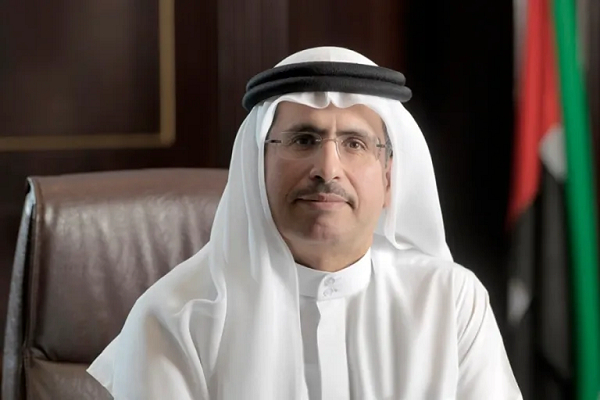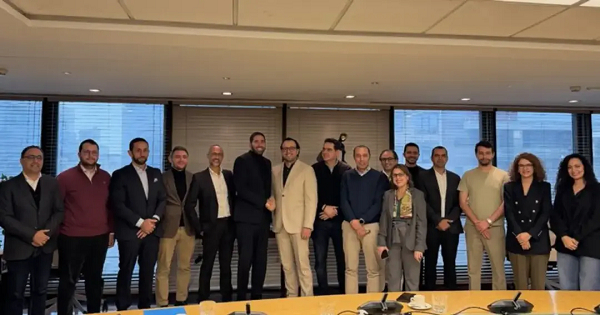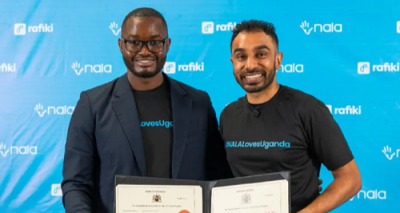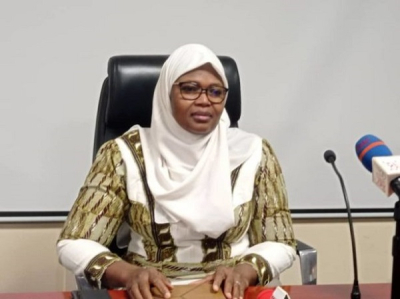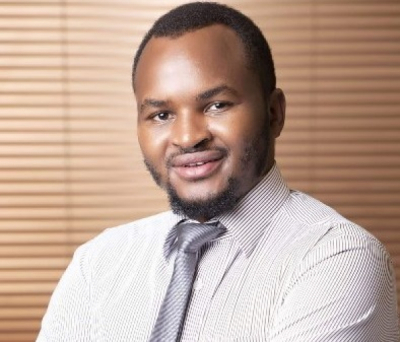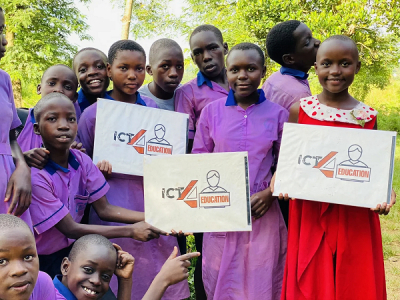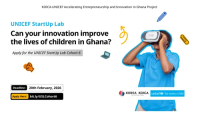African startups are invited to apply for the 5th edition of the Mohammed bin Rashid Al Maktoum Global Water Award. With a total prize pool of $1 million, the award honors innovative solutions that use clean energy for water production, distribution, storage, desalination, or purification. The competition features several categories for projects, research, individuals, and crisis solutions. Applications are open through April 30, 2026.
Last week, Moroccan startup Woliz raised $2.2 million in a pre-seed round led by insurer Sanlam Maroc to modernize the country’s vast network of local retail shops. Its platform leverages automation, data, and AI to connect shopkeepers, suppliers, and financial partners, optimizing inventory management and streamlining access to financial services. Looking ahead, the company plans to expand into other African markets.
Tanzanian fintech NALA announced last week that it has secured Payment Service Provider and Payment System Operator licenses from the Bank of Uganda, adding to its existing money transfer license. This new status allows NALA to operate on the country's primary regulated payment rails and supports a $2 million investment plan to bolster local infrastructure and serve the diaspora.
-
Burkina Faso approves $109.4 million digital transition budget for 2026
-
Funds target fiber expansion, internet access and public service digitization
-
Investment doubles 2025 budget despite weak e-government and internet rankings
Burkina Faso’s Ministry of Digital Transition, Posts and Electronic Communications has allocated 61 billion CFA francs (about 109.4 million dollars) for 2026. The budget was approved during the second ordinary session of the Ministerial Sector Administrative Council held on Monday, December 29.
The Annual Work Plan covers 156 activities, including the deployment of 270 km of optical fiber, the extension of mobile and broadband internet coverage to 750 identified white zones, the commissioning of mini data centers, the digitization of 100 administrative procedures, the construction of so-called “citizen houses,” and the strengthening of digital legislation.
The 61-billion-franc allocation is nearly double the 30.4 billion CFA francs budgeted in 2025. Last year’s results included the rollout of the CIM and CIMEX platforms across several public institutions, the issuance of 338 IT accreditations, the expansion of the national fiber-optic network to more than 11,292 km, and the connection of 88 additional buildings to the RESINA network.
Other achievements included the acquisition of five data centers, digital skills training for 169 young girls, the recruitment and training of 214 IT specialists, and the launch of “Zama tchéy” citizen houses aimed at bringing postal services closer to local communities.
The budget increase aligns with the government’s ambition to position the country as a regional leader in the use of information and communication technologies across public administration, education, health, commerce and agriculture. Authorities see digitalization as a key driver of socio-economic development and have identified 12 priority projects to support this strategy by 2030.
Despite these efforts, the country ranks 175th out of 193 in the United Nations E-Government Development Index, with a score of 0.2895 out of 1. This is well below the averages for West Africa (0.3957), Africa (0.4247) and the global benchmark (0.6382).
In cybersecurity, Burkina Faso is ranked in the third tier out of five under the International Telecommunication Union’s Global Cybersecurity Index. The country scores relatively well on governance, legal frameworks and international cooperation, but remains weaker in technical measures and capacity building.
Telecom data for 2024 show mobile voice coverage at 85%, compared with 64% for 3G internet and 46% for 4G. Nationwide, 1,700 white zones have been identified. Of these, 183 were covered in 2022 and 138 in 2024, with a further 750 scheduled for coverage in 2025. According to ITU figures, internet penetration stood at 17% in 2023, compared with 55.9% for mobile telephony.
Isaac K. Kassouwi
His technology is reshaping how real estate is managed by automating operational bottlenecks that have long relied on manual processes.
Ronald Mutuku is a Kenyan computer scientist and entrepreneur. He is the co-founder and chief executive of Silqu, a proptech startup developing digital property management solutions for owners, agencies and property managers across Africa.
Founded in 2020, Silqu has built a rental management system that allows users to track rents, tenants and expenses remotely via computer or mobile phone. The platform is designed for individual property owners, real estate agencies, developers and estate managers.
Silqu enables rent and service charge collection with detailed payment tracking for each tenant. It includes tenant management tools such as centralized records, communication features, status monitoring, and move-in and move-out management. The system also tracks financial accounts and reconciles property-related cash flows.
The platform automates the management of visitors, vehicles and parking, strengthening access control and streamlining billing, receipts, expenses and payments. It also generates reports and analytics on property performance, including revenues, costs and payment status.
The company says more than 900 property owners now use its platform, with over 10,000 properties under management.
Alongside Silqu, Mutuku serves as chief technology officer at UbaPesa Ltd, a Kenyan platform connecting lenders and borrowers. He is also chairman of Sqrool, a Nairobi-based software development company.
He earned a diploma in mathematics and computer science from Jomo Kenyatta University of Agriculture and Technology in 2012. He began his career in 2013 as an IT officer at Eastafrisat Communications, a computer security firm, before joining Craft Silicon Campus the same year as a software engineer.
Melchior Koba
By leveraging digital tools to drive equal opportunity, he is providing a practical solution to the educational and economic gaps that persist in rural areas.
Ntende Beka Isabirye is a Ugandan entrepreneur and the founder of Tech Reach Africa, a non-profit organization working to expand access to digital skills for students, teachers and young people in rural Uganda, with the aim of improving educational outcomes and income opportunities.
Founded in 2021 under the name ICT4Education and later rebranded as Tech Reach Africa, the organization operates primarily in eastern and central Uganda. Its work focuses on bringing practical digital learning to rural schools and underserved youth, positioning digital skills as a key driver of long-term community development.
As part of its school outreach, Tech Reach Africa deploys mobile computer labs to remote schools, giving students and teachers hands-on experience with basic computing and digital tools.
The organization also runs training programs for out-of-school youth and recent graduates, designed to help participants overcome financial and geographic barriers to employment. Courses cover web development, graphic design, videography and photography.
So far, 2,650 students from 21 schools have taken part in the school program. In addition, 350 teachers from those schools have been trained as digital mentors, enabling them to pass on skills and integrate digital tools into classroom teaching. Separately, more than 870 young graduates have completed the organization’s vocational training programs.
In 2017, Isabirye became a youth issues consultant for Swisscontact, a Swiss technical cooperation foundation, in Uganda. Between 2018 and 2024, he worked as a trainer with Dance4Life, an organization focused on sexual and reproductive health and rights. From 2019 to 2020, he also served as a project coordinator for Irise International in Uganda, which specializes in menstrual health management. He holds a diploma in organizational leadership and civic engagement from Louisiana State University, obtained in 2024.
Melchior Koba
By combining technology and sustainability, he’s transforming the African travel landscape. His approach ensures a better experience for travelers while delivering meaningful benefits to local communities.
Ryan Apreala is a Rwandan computer scientist specializing in artificial intelligence. He is the founder, chief executive, and creative director of Outside Hospitality, a technology startup operating in the tourism sector.
Founded in 2022, Outside Hospitality advocates a form of tourism grounded in respect for people, cultures, and the environment across Africa. The company seeks to present a more authentic image of the continent by moving away from stereotypes and focusing on meaningful experiences that benefit both travelers and local communities.
The startup is developing a digital platform that connects travelers with distinctive experiences while supporting hospitality businesses through creative services. These services include brand strategy, storytelling, and digital marketing, with a strong emphasis on sustainability.
“Sustainability is embedded across all our activities, from the experiences we offer to the businesses we support. Looking ahead, we plan to introduce a sustainable financing mechanism that rewards environmentally responsible companies and funds innovation in sustainable travel,” Apreala said.
Apreala graduated from the African Leadership University in Rwanda, where he earned a bachelor’s degree in software engineering and artificial intelligence in July 2025. He began his career in 2020 as a research assistant at the Boston University School of Technology in the United States. In 2023, he worked as a business development analyst.
Melchior Koba
Ghanaian startups are invited to apply for the sixth cohort of the UNICEF StartUp Lab, a six-month accelerator focused on tech-driven solutions for the Sustainable Development Goals (SDGs) impacting children and youth. Selected teams will receive expert mentoring, industry-specific support, and up to $6,000 in prototype funding. Additionally, the top three startups will be awarded $15,000 to help scale their impact. Applications are open until February 20.
-
Chad accelerates “Tchad Connexion 2030” digital transformation strategy
-
Government, Huawei discuss expanding connectivity and digital public services
-
Low internet access highlights urgency, with just 13.2% online in 2025
Chad is moving to accelerate the rollout of its national digital strategy, “Tchad Connexion 2030,” as it seeks to expand connectivity and modernise public services.
The Minister of the Digital Economy and Digitalisation, Boukar Michel, held talks on Wednesday, December 24, with a Huawei North Africa delegation to discuss priorities for the country’s digital transformation. The delegation was led by Jason Ye, Huawei’s Vice President for North Africa.
Talks focused on expanding telecommunications infrastructure, widening access to connected services, and speeding up the digitalisation of public administration. With internet access still uneven across the country, these areas are central to the government’s digital policy goals.
Authorities are relying on partnerships with technology providers to narrow the digital divide, particularly in rural areas, and promote broader digital inclusion. Improving network coverage, deploying solutions tailored to local conditions, and strengthening technical skills were highlighted as central drivers of the transition.
For Huawei, which is involved in several digital infrastructure projects across Africa, the discussions fit within its broader approach of working with governments seeking to modernise their economies. Both sides explored the possibility of turning the talks into concrete projects aligned with the objectives of “Tchad Connexion 2030.”
The talks come against a backdrop of low connectivity. According to DataReportal, only 13.2% of Chad’s population had internet access at the start of 2025, with sharp disparities between urban areas and rural regions.
Samira Njoya
Osee Soke is using artificial intelligence to develop communication tools for people with hearing impairments through his startup DeafSync.
Benin-based software and mobile developer Osee Soke is the co-founder and chief executive of DeafSync, a technology startup that develops artificial intelligence-powered tools aimed at reducing communication barriers for people with hearing impairments.
Founded in 2023, DeafSync develops digital solutions designed for use in everyday situations, including education, healthcare and daily interactions.
The company says its products are developed in collaboration with user communities to ensure they respond to practical needs.
One of its main products, Deaf Translator, is an application that converts written text into sign language videos and translates sign language captured on video into readable text. The application also includes a learning feature to support sign language training.
DeafSync has also developed Lambda, an online training platform focused on skills development. The platform offers more than a dozen courses across several categories, including data science certifications and employment support services such as CV review and job interview preparation.
Soke holds a professional degree in computer programming from the University of Abomey-Calavi in Benin, obtained in 2021. He began his career in 2022 as a mobile developer intern at agritech company Biolife Tech before working as a freelance software engineer and WordPress developer.
Melchior Koba
More...
Rwandan fintech Kayko recently raised $1.2 million in seed funding to scale its management platform for small businesses. Founded in 2021, the startup already supports over 8,500 SMEs in tracking sales, inventory, expenses, and taxes through its POS system. Kayko plans to leverage this data to develop credit scoring models and streamline access to financing.
After years in Nigeria’s banking sector, she moved into entrepreneurship with a focus on expanding access to digital banking and online payments.
Onyinye Olisah is a Nigerian entrepreneur and the founder and chief executive officer of OnUs Financial Services, a digital payments company that helps African businesses accept online payments securely across borders.
Founded in 2022, OnUs Financial Services aims to serve as a growth driver for modern African companies by offering an integrated platform to receive, process, and manage payments. The company has developed two main products, PayOnus and BankOnus, providing payment and digital banking services to both businesses and individuals.
PayOnus is a web- and mobile-based payment platform designed for businesses. It enables fast and secure online transactions and supports multiple use cases, including e-commerce payments, peer-to-peer transfers, and subscription management, with an emphasis on reliability and data protection.
BankOnus is aimed at individual users. The platform functions as an all-in-one financial companion, going beyond standard digital banking features to help users manage day-to-day finances, access banking services, and carry out certain transactions on behalf of partner organizations.
Olisah graduated from the University of Nigeria, Nsukka, with a bachelor’s degree in English language and literature in 2004. She later earned a master’s degree in public and international administration from the University of Lagos in 2021.
She began her banking career in 2007 at Intercontinental Bank as a teller, before moving into roles in customer relations and customer service management. In 2010, she joined Serengeti Communications as a director. Two years later, she moved to Standard Chartered Bank as a relationship manager.
In 2016, Olisah was appointed branch manager at ProvidusBank in Lagos. She joined fintech firm Interswitch Group in 2017, where she held several roles, including sales manager, regional team lead, and head of the service management group. Between 2022 and 2024, she continued her career in financial technology at Bud Africa, serving as vice president of sales.
Melchior Koba
Trained in finance, he built a healthcare startup that uses digital tools to connect patients, pharmacies, and medical professionals.
Aloys Koum is a Cameroonian entrepreneur with a background in banking. He is the founder and chief executive officer of Pharma Dream, a digital platform that helps patients find nearby pharmacies and access reliable health advice through a streamlined process.
Launched in 2019, Pharma Dream was created to improve access to healthcare services. The platform connects users with a broad network of pharmacies and healthcare professionals, allowing them to quickly identify the most suitable pharmacy for their needs. The company currently works with more than 200 partner pharmacies.
In addition to pharmacy location services, Pharma Dream offers online access to medical guidance. Qualified doctors are available to respond to health-related questions, while the platform also publishes educational content on various medical conditions, produced by health professionals.
Koum is a member of the International Committee of Digital Health Experts in Africa (CEISNA). He also serves as an administrative manager at the International Bank of Cameroon for Savings and Credit (BICEC).
He holds a bachelor’s degree in finance and macroeconomics from the University of Yaoundé II and a master’s degree in business administration and finance, completed in 2012.
Melchior Koba
-
Ghana, Japan discuss launching AI and data science training programme
-
University of Tokyo-led initiative targets 30,000 African AI professionals
-
Plan supports youth employment amid high joblessness and digital skills demand
Ghana is discussing plans with Japan to launch an artificial intelligence (AI) and data science training programme for students, aimed at equipping young people with future-ready digital skills and strengthening the country’s role in the global digital ecosystem.
The discussions took place last week during talks between Ghana’s Minister for Communications, Digital Technology and Innovation, Samuel Nartey George, and a delegation from the University of Tokyo.
The proposed programme forms part of the “Development of AI/Data Science Resources for Economic Growth in Africa” initiative led by the University of Tokyo’s Matsuo Laboratory. The initiative seeks to build Africa’s AI capacity by extending the Global Consumer Intelligence (GCI) programme to the continent, with plans to train 30,000 AI professionals over the next three years in collaboration with African universities and the Japan International Cooperation Agency (JICA).
Under the proposal, the programme would be delivered online in English to students at public universities and selected secondary schools, with industry-recognised certification designed to improve employability and practical digital skills.
Talks also addressed support for entrepreneurship in partnership with the United Nations Development Programme (UNDP), as well as job opportunities through collaborations between Japanese companies and local startups facilitated by JICA.
The government is also seeking local and international partnerships to strengthen digital skills training for young people.
As part of its “One Million Coders” programme, which aims to train one million young people over four years, Ghana has already engaged potential partners including TikTok, TECHAiDE, Google, Huawei, Microsoft, AWS and Code Racoon. These efforts come as the World Bank estimates that 230 million jobs in sub-Saharan Africa will require digital skills by 2030.
Youth unemployment remains a major challenge. Official data show that unemployment among those aged 15 to 24 averaged 32% in 2024, while the rate for people aged 15 to 35 stood at 22.5%.
Isaac K. Kassouwi


